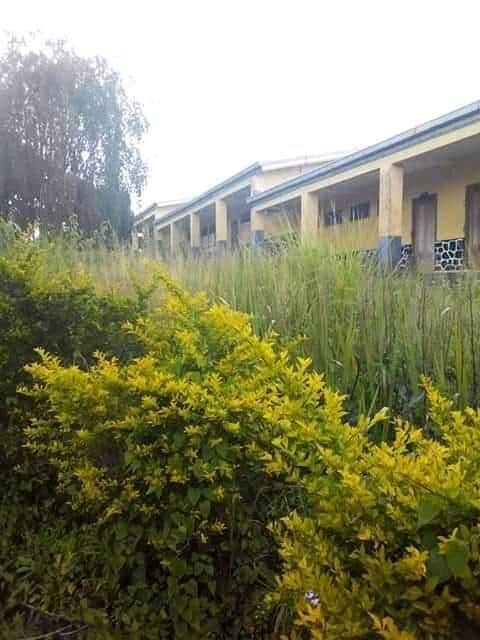Civil war meets COVID-19: Cameroon as a case study in deterioration and chaos

Just as it is our moral duty to join the global collaborative efforts to eradicate COVID-19, it is also our moral duty to ensure our fellow human beings have access to peace, education, jobs, housing, and the basic requirement for human dignity. That may be our moral duty, yet we all know that millions of children are born around the world who may never get to experience these basic requirements for a decent human life. As this documented injustice unfolds in this new decade, it becomes our responsibility now to speak up, advocate, and engage in the fight for justice for those who are suffering on the other side of the world.
With a focus on West Africa, and specifically my country of Cameroon, the experience of peace, decent employment, and quality education has essentially been non-existent in some parts of the country due to the civil unrest that started in 2017. Thousands of Cameroonians have been forced to seek refuge in bordering Nigeria due to separationists demands to form their own country: Ambazonia. Although the root of this civil war ultimately is due to the ripple effects of colonialism which deeply divided the country between the ‘francophones’ and the ‘anglophones,’ as a Cameroonian I remain hopeful that the country I grew up in will one day know peace again.
Contrary to the popular misconception that the civil unrest is due to anglophone youths leading the rebellion with the goal being to create civil unrest, the desire to achieve separation dates back to when Cameroon first gained its independences from the British and the French. As evident from the archive of the Berlin Conference of 1884-5, France had earlier been awarded part of Cameroon, and Britain was allocated the west region bordering Nigeria (this explains why Nigeria and its bordering states such as Cameroon speak English – French and English are colonial languages). Following the independence of Cameroon in 1961 from its colonizers, the Berlin Conference power-structure ensured that Cameroon would be ruled by the “French-speakers,” building on the colonial tactic of “divide and conquer” that continues to create conflicts in African nations presently.
Fast forward 60 years after gaining its independence, and Cameroon is plagued by civil war, and is ruled by an incompetent 87-year-old dictator who has been in power since November 6, 1982. Under his watch, the nation is crippled by persistent high levels of unemployment, poor quality education, and a public health system that is ill-equipped to cope with ordinary health needs, much less the novel coronavirus pandemic. Undoubtedly, war is inevitable as the country’s president nears his death, and Cameroonians are now struggling to agree on the nature of the inevitable power transition. The choices seem stark – to have a democratically-elected leader, or to continue the authoritarian nepotism that has devastated Cameroon over the last five decades. Whatever the future of Cameroon looks like, it is obvious that positive change cannot happen if Cameroonian elites retain the current closed and tightly knit relations with France and with other foreign nations. Such nations do not have the average Cameroonian’s interest as their priority.
Simply put, if Africa aspires to achieve stability, peace, and development, African countries must restructure their international relationships and cut the exploitative ties with Western interests who mask themselves as their allies. The continuous theft of Africa’s natural resources from initial colonial days until the present, under the pretense of mutually respectful trade relations, can no longer be tolerated or ignored when discussing the framework of meaningful international development. Even “good aid” such as serving as “election watchdogs,” to providing humanitarian aid from abroad (at the risk of deforming or even devastating the local economy and creating mass unemployment), should be subject to moral assessment and scrutiny. New forms of international relationships, based on genuine principles of mutual respect instead of leveraging asymmetrical power, must replace exploitative, one-sided relationships. If this cannot be achieved, then it is time for the West to “liberate” Africa, and to allow its people to be truly self-governed. This does entail a fundamental challenge, however: can Africa actually shake itself free from the inherited and divisive colonial governance model that benefits only the self-serving elites on either side?
My intention is not to place the blame for Africa’s societal ills on the West’s conscience. Rather, my purpose is to engage in the urgent conversation on the decolonization of international development. Indeed, the African diaspora has always directly contributed towards the economic development of Africa by sending money home to families, and Africa as a continent would be easily self-sufficient if its natural resources were not exploited and mismanaged.
Such a radical reformulation would not come about easily, or through gentle requests. It is important that Africans understand Nelson Mandela’s poignant view on freedom: “May your choices reflect your hopes, not your fears.” We should also remember Mandela’s advice that “no single person can liberate a country. You can only liberate a country if you act as a collective.”
Ignoring the inexplicable example of the United States’ demand to withdraw from the World Health Organization, many other countries in the West have joined in collaborative international efforts to eradicate COVID-19. All such countries, including the United States, should also join in the discussion on liberating Africa from a system of international relations that is one-sided and disrespectful of Africa and Africans. Failing this, we may yet see a return to violence and disruption, as we return to a modern incarnation of the African Independence Movement of the 1960s.
By Rick Tamno
Featured image: Image taken by an anonymous local resident showing the effects of the anglophone crisis which has caused the abandonment of schools and the displacement of students.



Leave a Comment